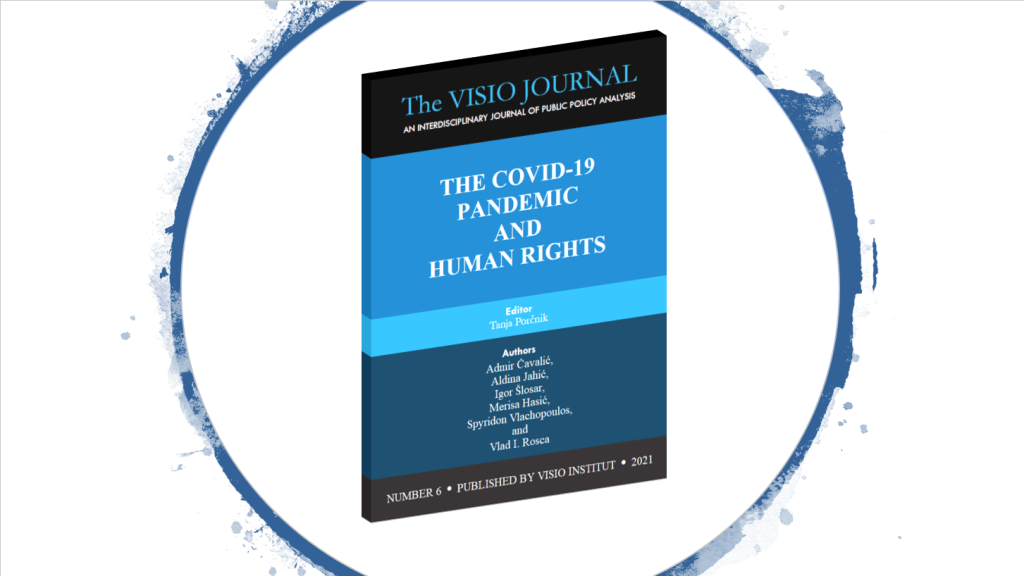Any pandemic is not only a threat to the health and safety of the people but may also lead to other significant threats to them.
In times of great national uncertainty, the government is called upon to act, and the present pandemic is no exception. In responding to the COVID-19 pandemic exigencies, governments around the world have taken vast and unparalleled decisions to contain the spread of the COVID-19 virus and protect lives. Indisputably, many of those measures have directly or indirectly curtailed our human rights and freedoms of millions of people around the world.
Crucially, in such times, policymakers are not only expected to impose and enforce proportionate legal measures to address the coronavirus pandemic. They should also maintain or even strengthen an institutional environment with secure rights and freedoms that could, among other things, even enable the country to better cope with the crisis and recover from it more quickly afterward.
In this context, the most important question is, have human rights shaped responses to an unprecedented and global crisis, or have they been mandated at their expense? Also, have coronavirus emergency measures perhaps been abused for attacks on human rights?
It is with great pleasure that I present Volume 6 of The Visio Journal that features four papers exploring the answers to these and other related questions. In the first one titled The Rights and Challenges of South Asian Migrants in Romania during the COVID-19 Pandemic, Dr. Vlad I. Roșca analyzes how the COVID-19 crisis exposed Third Country Nationals (TCNs) in Romania to yet another risk of vulnerability to the dangers of social exclusion.
Many of TCNs working in Romania are from South Asia and most of them are low-skilled workers employed in the primary or secondary sectors of the economy. Poor standards of living, deficitary public policies and delayed political decision-making in Romania have done little else than to deprive TCN workers of some basic human rights, while also increasing their vulnerability and exposing their host communities to even higher health risks. This article investigates if and how the human rights of South Asian TCNs in Romania were respected in the wake of the COVID-19 pandemic of 2020, and what effects there were on their quality of life and standard of living.
Next, Dr. Spyridon Vlachopoulos in a paper titled Constitutional Mithridatism: Fundamental Rights in Times of a Pandemic explores the danger of the gradual consolidation of a constitutional mithridatism.
With mithridatism being the practice of protecting oneself against a poison by gradually self-administering non-lethal amounts, the author defines constitutional mithridatism as the danger of tolerating any restrictions on our rights, even after the end of extraordinary circumstances. Because even after their end, there is a risk that these restrictions on individual rights and freedoms will continue or intensify. How do we defend our values, rule of law and democracy, while we aim to tackle the coronavirus pandemic?
Third, in a paper titled Human Rights during the COVID-19 Pandemic in Bosnia and Herzegovina, Aldina Jahić, Merisa Hasić, and Admir Čavalić study a broad spectrum of human rights and freedoms restrictions in Bosnia and Herzegovina, while considering two significant characteristics of the country.
First, Bosnia and Herzegovina is a decentralized country, which means that COVID-19 measures are partially adopted by different governments of the same country. Second, the Constitutional Court of Bosnia and Herzegovina, which is not only independent but also protective of liberal values like the human rights, has issued a series of decisions where the government’s measures to address the COVID-19 pandemic have been declared unconstitutional. These and other cases of human rights infringements are analysed in their paper.
Fourth, Igor Šlosar in a peper titled A Pandemic in a Pandemic: Domestic Violence in Croatia highlights that COVID-19 lockdowns and other restrictions on movement and association led to people spending more time at home than earlier.
Only as the pandemic extended from initial few weeks and months, second-hand consequences of restrictions became noticeable. One of those is the rise in domestic violence. Often, the victims of such violence are women. Since the pandemic struck, Croatia has experienced a surge in cases of domestic violence and an increased influx of victims seeking shelter.
The network of safe houses, shelters and call centers taking in these cases was already underfunded before the COVID-19 pandemic, and the increase in cases will only exacerbate the issues already present. The Croatian government has promised funds to increase the capacities of the system, but that has yet to come to fruition.
However, the author argues that no single act of government will be enough. To prevent a collapse of the support system in Croatia, which is flawed, underfunded and slow at almost every level, change must be systemic and with wide support from the public.
Finally, I would like to recognize the generous contribution of the Friedrich Naumann Foundation for Freedom for supporting this volume of The Visio Journal.
The article was also published at: https://www.freiheit.org/central-europe-and-baltic-states/impact-covid-19-pandemic-human-rights



